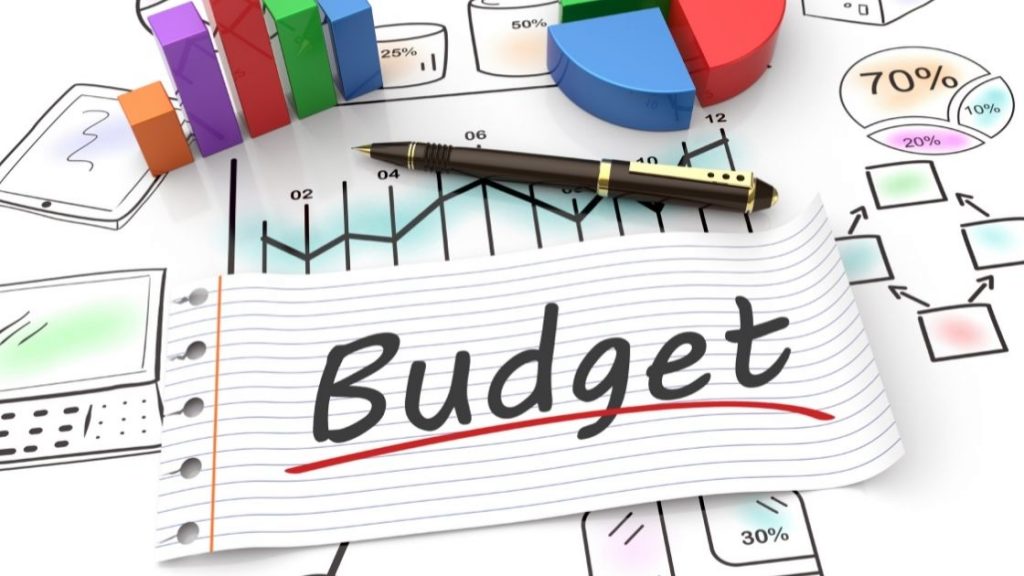Living below your means is a foundational principle of personal finance.
At least that’s what you hear all the time from personal finance gurus and experts. The concept is simple. Make sure you spend less than you earn and save or invest the rest.
This will do three really good things.
First, it will keep you out of debt because you will only be living off what you can afford.
Second, it will allow you to save up for a rainy day and prevent you from financial collapse if unexpected expenses arise.
Third, it will improve your future prospects because you can eventually start investing in stocks, bonds, real estate, and other wealth generating assets that can secure your financial freedom.
Now all of that sounds great in principle, but the reality is that there are a host of forces conspiring against you when you actually try to do this.
Why Does This Feel Like a Myth?
The reason why living below your means feels like a myth is because it is becoming more and more impractical to do this. When you actually try, you often discover that the numbers don’t seem to work or the sacrifices seem too steep. You start to seriously wonder whether it is even worth the effort to try to live within your means.
I am speaking from personal experience here. I had hundreds of thousands of dollars in debt, was stagnating in my job and just couldn’t seem to find a way out.
When you have a huge drag on your finances like student loan and credit card debt, your income appears hopelessly flat, and you are fighting against runaway inflation, the situation can seem hopeless.
But I want to tell you that the situation is not hopeless. You can climb out of it and this article is going to give you some tips on how to do that.
We’ll cover some of the key obstacles that prevent you from living below your means and provide actionable and practical solutions to overcome each of them.
After all, even if it appears hopeless, what’s your alternative? Spiraling debt and financial ruin? No thanks – living within your means (or at least trying your best to do so) is always worth it. Let’s find out how to do it successfully.
This post may contain affiliate links. If you click on a link and complete a transaction, I may make a small commission at no extra cost to you.
The information contained in this post is for informational purposes only. It is not a recommendation to buy or invest, and it is not financial, investment, legal, or tax advice. You should seek the advice of a qualified professional before making any investment or other decisions relating to the topics covered by this article.
Number 1. Your Budget Doesn’t Work

Without a well-defined budget, it’s difficult to know whether you’re truly living below your means. A budget helps you track your income and expenses, identify areas where you can cut back, and allocate funds towards your financial goals.
The bad news is that, in many cases, people don’t even have a budget or they can’t seem to follow it.
This leads to them overspending and not having enough money at the end of the month to pay for everything, which then causes them to incur debt.
If this is left unchecked, the debt will pile on each month, which will eventually lead to financial ruin.
So how do we solve this? First, you need to create an accurate and realistic budget.
Sit down and figure out all of your bills and monthly expenses. Make sure you capture irregular expenses like annual taxes, insurance payments, and the like, and account for them too.
If your income is not enough to cover everything, try to find areas to cut, such as eating out, shopping, entertainment, and other non-essential costs.
You can then set realistic targets for each expense category, which will help you stay within your overall budget.
If you are having a hard time sticking to your budget, use free tools like Mint, Every dollar and Good budget.
If you are budgeting with a partner, you can try Honey due, which will track activity for both you and your partner and give info on a consolidated budgetary basis..
If keeping track of every expense and staying within spending limits for each category is not for you, there is a simple budgeting process called paying yourself first, which allows you the freedom to spend on whatever you want, so long as you pay yourself first.
The idea is simple. If you make $5,000 a month, you set aside $500 into a high yield savings account or investment account before it even hits your regular checking account. You don’t touch that.
Then you use the remaining $4,500 to pay for your bills and everything else. You don’t have to worry about individual expenses and keeping track of them, so long as you don’t go negative in your checking account.
Plus, you have the assurance that you have already socked away some money for the month and that your future financial outlook is looking better by the month.
This is what actually worked for me and got me back on track from a budgeting perspective. To learn more about this strategy, check out my detailed article on the topic here.
Number 2. You Don’t Make Enough Money
For some individuals, their income may simply be too low to cover basic living expenses, let alone save or invest for the future. In these cases, living below your means might not be feasible.
What’s the solution? It’s simple, but not easy. You need to increase your income. Luckily, this channel is all about how you can do that. You can start by exploring side hustles like freelancing or setting up a low cost passive passive income business.
These can include starting a blog or social media channel, like Youtube, TIktok or Instagram. You can even write an ebook and sell it on Amazon for free. I cover tons of these ideas in this article if you want to learn more.
Of course, you can also take the more traditional approach and invest in additional education or training to get a better job or promotion. Investing in yourself is one of the best ways to improve your financial future.
Number 3. Social Pressure
We live in a society that glorifies consumerism and material possessions. This should be obvious to anyone who is on social media.
The desire to keep up with the Joneses can make living below your means challenging, as you may feel the pressure to spend on items or experiences to maintain your social status.
What’s the solution? Surround yourself with like-minded individuals who share your financial goals and values. There are definitely online communities, like facebook groups, that cater to the budget conscious and offer tips and tricks to avoid excessive consumerism.
Be open about your commitment to living below your means and seek support from friends and family. And limit your exposure to ads and social media outlets where you see people glorifying consumerism.
Sometimes a retreat from social media can give you a fresh perspective on what actually matters.
Number 4. Inflation
In recent years, inflation has become a serious issue. From gas prices to the cost of food and other essentials, we have seen a significant rise in the cost of living.
This naturally means that living below your means is going to be more difficult.
So how do we combat this? There’s no single answer – it is going to be a combination of finding ways to make more money and spend less.
It is also about making your dollar go further.
You can do this with simple things like coupons and comparison shopping. One of the secret ways I fight against the rising cost of everything is by using cash back apps like Ibotta and Rakuten. They literally give you cash back when shopping, which is frankly amazing.
Number 5: Lifestyle Creep
As your income increases, it’s natural to want to improve your standard of living. However, lifestyle creep can quickly erode any financial gains, making it difficult to live below your means.
How do you overcome this? When you experience an increase in income, sock away most of that money toward your savings or investment account and spend only a small portion of the increase to improve your lifestyle.
You will limit lifestyle creep, improve your overall financial picture, and still have a little bit of extra spending money to reward yourself for a job well done.
Final Thoughts
In closing, living below your means can be a highly effective strategy for achieving financial independence and building wealth. However, it’s not without its challenges.
By acknowledging the obstacles that may arise and implementing the solutions outlined above, you can increase your chances of success and make living below your means a sustainable, long-term approach to managing your finances.

